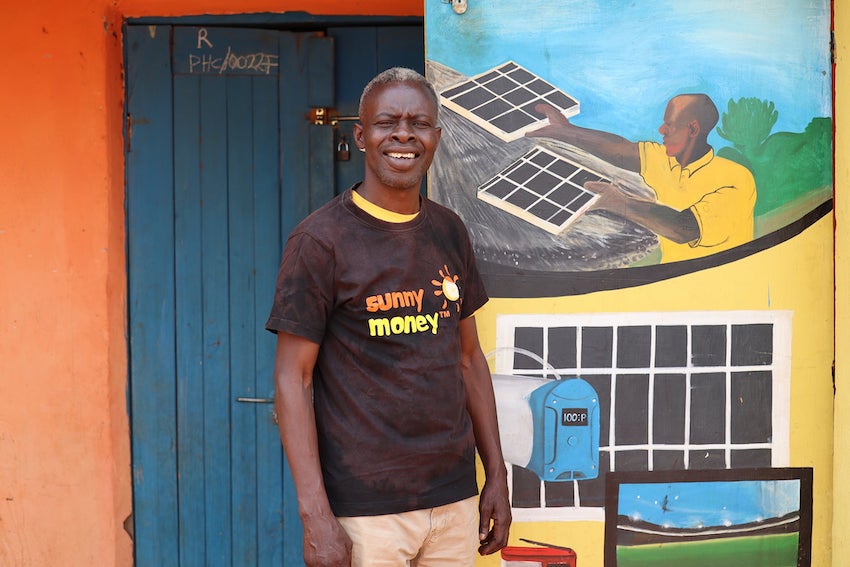
SolarAid, an international charity, has today announced the launch of a new pilot project that will provide solar lighting to all homes in a single super-rural Malawi community, with a view toward creating a model that could bring renewable energy to all super-rural households across the continent.
SolarAid will equip every household in Ntchisi, a largely off-grid district in central Malawi, with pay-as-you-go solar home systems and provide access to a period of free lighting. Households can either buy the solar home system or rent the device, paying only for the energy used. The pilot will run for 12 months and cover 500 households.
The project is called Light A Village and SolarAid said that it is fundamentally different from other schemes because it seeks to reach 100 percent of households in a single village, rather than just a proportion of households. The company hopes that providing 100 percent of households with solar will give the project the scale it needs to cover its operating expenses, establishing a sustainable business model to roll-out clean energy across all of super-rural Africa.
An estimated 550 million households in sub-Saharan Africa do not have access to reliable electricity. Instead, many rely on potentially hazardous candles and kerosene lamps, or use their limited financial resource on disposable batteries for essential light and power.
Energy poverty is especially severe in Malawi, where 84% of the population live in rural areas. When night falls, children cannot continue their studies, businesses often have to close, and clinics sometimes have to stop looking after patients.
The solar lighting systems will be distributed by SunnyMoney, SolarAid’s social enterprise arm. Another way the scheme is different is that it is targeted at super-rural villages, which are still a critical blackspot for energy and lighting currently.
John Keane, CEO of SolarAid, said: “If we are to end energy poverty in Africa by the end of the decade, it is important to keep innovating and coming up with new models that are sustainable. Through a business-based model, we are seeking to reach the poorest with clean energy, while at the same time, keeping money in the local economy, which is the objective of Light a Village.”
The launch of the Light a Village pilot follows a £75,000 gift from Dr. Ewan Kirk and Dr. Patricia Turner through their Turner Kirk Trust. Long-term supporters of the charity, the Trust funded a similar pilot in 2013. The Trust’s support is truly unique because they understand that the pilot project may fail, but they have been willing to support SolarAid in its experimentation.
Dr. Ewan Kirk, Co-chair of the Turner Kirk Trust, said: “If we are going to solve difficult global problems, like energy poverty, it is essential that organisations like SolarAid are given the permission to fail. This is what Light a Village is all about – experimenting in an entrepreneurial way to find a way of working that has the potential to ultimately reach more people. Charities need financial support to trial, experiment, learn and adapt. It would be an even greater failure if we did not try at all.”
Dr. Patricia Turner, Co-chair of the Turner Kirk Trust, said: “A lack of reliable and safe electricity is both a cause and outcome of extreme poverty. In addition to that, protecting the environment and climate is one of the biggest challenges facing us all today. With the use of solar, we can both increase the use of renewable sources of energy as well as provide families with a reliable and constant source of light. The challenge is not the technology – it’s reaching as many people as possible in an effective and sustainable way. If the pilot is successful, it lays out a route to get renewable energy into every rural household in Africa. That would be a gamechanger.”
John Keane, CEO of SolarAid, added: “I would like to thank the Trust for their generous gift. This invaluable donation will allow us as a charity to innovate and experiment, with a view to further turning the dial on our bold ambition of putting solar energy in every household across Africa by 2030. Working with Ewan and Patricia, and having their permission to fail, will advance this target hugely. It will enable us to explore new and different options that wouldn’t otherwise have been found.”




